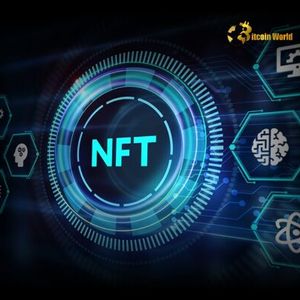The crypto community controversy over proof-of-reserves has taken a new turn, with MicroStrategy CEO and self-described Bitcoin maximalist Michael Saylor recently calling on-chain proof-of-reserves ”a security nightmare.” Saylor's comments, which have stirred controversy among the broader crypto community, highlight growing concerns about privacy and security when exchanges publish wallet addresses. Saylor's Security Concerns Saylor argues that requiring exchanges to publish their public wallet addresses leaves them in high risk. ”If you force companies to disclose all their addresses, you open up an executive kidnapping risk and a security nightmare for the company,” he said. Saylor also warned that openness could draw MEV (Maximal Extractable Value) attacks, where malicious actors exploit transaction ordering for profit. Instead of on-chain proofs, Saylor favors third-party auditing as a more pragmatic and secure means. ”The correct answer is a reputable, independent, trusted auditor,” he stated, suggesting that conventional financial regulation offers superior protection for both corporations and clients. Alternative Approaches: Binance and Kraken Saylor's move comes as leading exchanges test different proof-of-reserves protocols. Binance, for example, uses a Merkle-tree-based protocol. The system allows users to verify that their funds are part of the exchange's overall reserves, without revealing the entire list of balances or addresses. The Merkle tree system provides cryptographic proof of reserves while maintaining an element of privacy. Kraken, however, has implemented a zero-knowledge proof system. This advanced cryptographic technique enables Kraken to prove to users that it has sufficient reserves to cover customers' balances without disclosing any sensitive on-chain data. Zero-knowledge proofs are praised for their ability to balance transparency and confidentiality, addressing most of the concerns Saylor has. The proof-of-reserves argument is wide open. On-chain transparency supporters argue that public audits need to be in place in order to bring back confidence in the wake of prominent exchange collapses. Opponents, like Saylor, counter that full transparency brings new risks to exchanges and users alike. Industry norms are still in development. Although Merkle-tree and zero-knowledge proofs offer promising alternatives, these also require users to assume that exchanges utilize these systems honestly and efficiently. Third-party audits, Saylor's preference being noted, can provide another layer of assurance, yet their usefulness rests in the auditor's reputation and liberty. Practical Challenges and Regulatory Perspectives Aside from technical and security concerns, exchanges also have to contend with a complex regulatory landscape. Regulators in different jurisdictions have varying requirements for transparency and auditability, which would complicate the ability of global exchanges to adopt a one-size-fits-all solution. Furthermore, the rapid progress of cryptographic verification means that best practice today would not be very long-lived. For clients, the answer lies in remaining vigilant and informed. As the proof-of-reserves brouhaha continues, users must look not only at exchanges' practices but also at how frequently and transparently they report. At the end of the day, the goal is to keep user balances safe, accessible, and auditable without exposing exchanges or their users to excessive risk. The bottom line Michael Saylor's warning about the danger of on-chain proof-of-reserves has put into question an important debate in the crypto world. With the consideration of advantages and disadvantages between openness, privacy, and security by the exchanges, the search for best practices continues. Regardless of whether the future of proof-of-reserves is cryptography, third-party auditing, or a combination of both, one thing is for sure: openness must be matched with protection in order to preserve user trust and security.



















